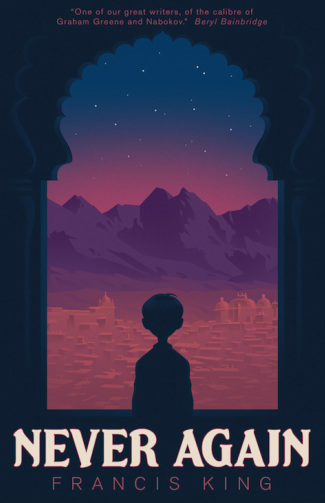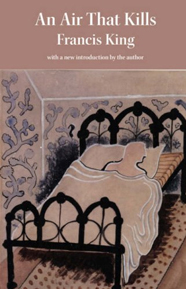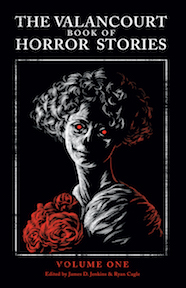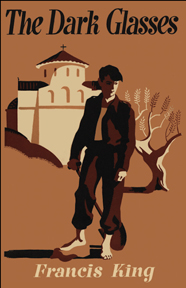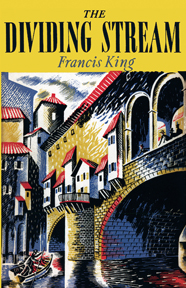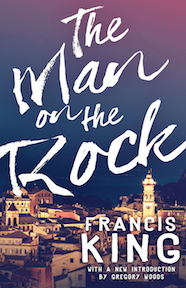|
BOOK DETAILS
Trade paper ISBN-13: 978-1939140326 List Price: $17.99 U.S. Pages: 236 Published: 2013 |
Never Again (1947)
Francis King With a new introduction by Robert Khan Book Description
Hugh Craddock’s idyllic childhood in India comes to a sudden and violent end when his parents are murdered by natives hostile to British occupation. Abruptly snatched away from every happiness he has ever known, the young orphan is packed off to England to live with distant and uncaring relatives. After experiencing so much loss, Hugh hopes things will get better when he goes away to school, but he finds it difficult to fit in with the other boys. His only source of solace is his friendship with Brian Chorley, with whom he forms a mutual and intimate bond. But when Chorley falls dangerously ill, Hugh must confront the possibility that he will suffer yet another loss, perhaps the most devastating one of all. The second of the forty volumes of fiction written by Francis King (1923-2011) over an award-winning career that spanned seven decades, Never Again (1947) is one of his finest and was one of his own favourites. Never before reprinted and long nearly unobtainable, King’s moving and heartfelt novel, based on his own boyhood, returns to print in this edition, which includes a new introduction by Robert Khan. |
reviews
“One of our great writers, of the calibre of Graham Greene and Nabokov.” - Beryl Bainbridge
“He deserves the widest possible readership.” - Melvyn Bragg, Punch
“Mr. King is, of course, an extremely skilful writer. All his characters are credible, all worth observing.” - Auberon Waugh, Evening Standard
“No one writes better prose than Francis King.” - Ruth Rendell
“He deserves the widest possible readership.” - Melvyn Bragg, Punch
“Mr. King is, of course, an extremely skilful writer. All his characters are credible, all worth observing.” - Auberon Waugh, Evening Standard
“No one writes better prose than Francis King.” - Ruth Rendell
ALSO AVAILABLE THROUGH ONLINE RETAILERS
MORE TITLES BY THIS AUTHOR
AUTHOR BIOGRAPHY
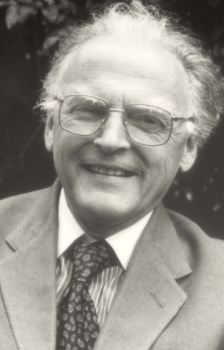
Francis King was born in Switzerland in 1923 and spent the first eight years of his life in India before being sent back to England to a boarding school. A bright student, he earned a Classics scholarship to Balliol College, Oxford, but later changed to English literature, and published his first novel, To the Dark Tower (1946) while still an undergraduate. This novel, and his next two, Never Again (1947) (an autobiographical novel based on King’s childhood) and An Air That Kills (1948), were published by Home and Van Thal, which then went bankrupt, but not before King had established himself as a promising young novelist.
Beginning in 1949, King worked for the British Council and travelled extensively, including to Italy, Greece, and Japan, all of which would provide settings for his novels. His next book, The Dividing Stream (1951), set in Florence, won the Somerset Maugham Award and cemented King’s status as one of the bright young literary stars of his generation. During the 1950s and 60s, King published a string of excellent works, including The Dark Glasses (1954), The Man on the Rock (1957), The Widow (1957), The Custom House (1961), and The Waves Behind the Boat (1965).
In 1966, King resigned from the British Council to devote himself to writing full-time and supplemented his income by writing book and theatre reviews and working as a literary adviser to the publishing house of Weidenfeld & Nicolson.
He continued to write prolifically, and notable highlights include the gay-themed novel A Domestic Animal (1970), which drew a threat of a libel action, The Action (1978), which narrowly missed the Booker shortlist, and Act of Darkness (1983), which, unlike many of King’s books—which were always well-received critically—was relatively successful commercially.
King went on writing until his death in 2011, making the Booker longlist with The Nick of Time (2003) and publishing a revised 60th anniversary edition of An Air That Kills with Valancourt Books in 2008; his final novel, Cold Snap, appeared in 2010.
Beginning in 1949, King worked for the British Council and travelled extensively, including to Italy, Greece, and Japan, all of which would provide settings for his novels. His next book, The Dividing Stream (1951), set in Florence, won the Somerset Maugham Award and cemented King’s status as one of the bright young literary stars of his generation. During the 1950s and 60s, King published a string of excellent works, including The Dark Glasses (1954), The Man on the Rock (1957), The Widow (1957), The Custom House (1961), and The Waves Behind the Boat (1965).
In 1966, King resigned from the British Council to devote himself to writing full-time and supplemented his income by writing book and theatre reviews and working as a literary adviser to the publishing house of Weidenfeld & Nicolson.
He continued to write prolifically, and notable highlights include the gay-themed novel A Domestic Animal (1970), which drew a threat of a libel action, The Action (1978), which narrowly missed the Booker shortlist, and Act of Darkness (1983), which, unlike many of King’s books—which were always well-received critically—was relatively successful commercially.
King went on writing until his death in 2011, making the Booker longlist with The Nick of Time (2003) and publishing a revised 60th anniversary edition of An Air That Kills with Valancourt Books in 2008; his final novel, Cold Snap, appeared in 2010.

